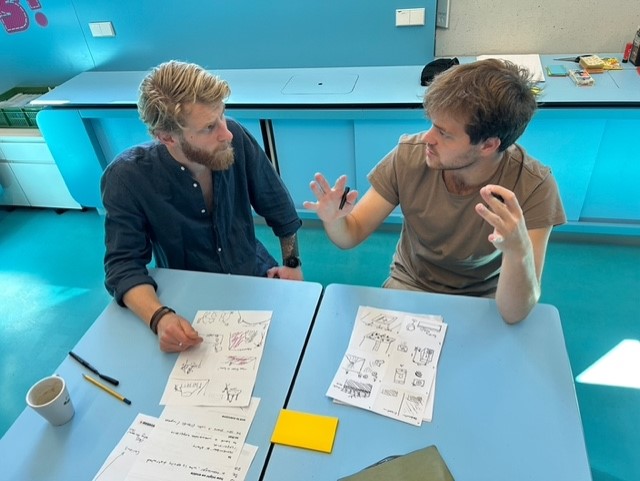Become a changemaker, contributing to innovative sustainable solutions. Get outside your comfort zone and work on real-life problems in an interdisciplinary programme for master students.
The Da Vinci Programme offers students an immersive learning experience aimed at educating a new generation of changemakers, connectors, and innovators. In collaboration with private and public partners, interdisciplinary student teams will tackle sustainability-related challenges. During the programme, students from Eindhoven University of Technology, Wageningen University & Research, and Utrecht University work several days a week in interdisciplinary teams on their challenge at the partner’s site.
This programme will start in February 2026 and will run for 20 weeks (30 EC). Alternatively, a short track of 10 weeks (15 EC) is available. This short track is intended for students whose master’s programmes do not allow them to participate in the full 20-week programme.
Practical Information
- You can choose either the long track of this program, with a study load of 30 EC, or the short track version, with a study load of 15 EC.
- The program will start on February 2, 2026, and end on June 26, 2026.
- The short track version will start on February 2, 2026, and end on April 17, 2026.
- The program is open to Master’s students from all disciplines at Utrecht University, University Medical Centre Utrecht, Eindhoven University of Technology, and Wageningen University & Research.
- The course will be taught in English.
- It is especially suitable for students who want to develop personal skills and competencies such as:
- Learning how to apply design thinking to sustainability challenges
- Collaborating and communicating across disciplines
- Working with real stakeholders (20 hours of direct contact)
- Engaging with various perspectives and people from other areas of expertise
- Receiving personal guidance from a challenge-based learning coach
In collaboration with external partners, the Da Vinci Programme will offer different challenges to choose from. When you sign up for the programme, you will be required to submit a motivation letter for one of these challenges.
The specific challenges will be announced at a later date.
During and after this programme, you will:
- Be equipped with the knowledge, soft and hard skills, and mindset needed to tackle sustainability challenges
- Gain experience in interdisciplinary research, stakeholder management, and other leadership skills
- Practice creative thinking, prototyping, and critical reflection
- Discover how you can contribute value in an interdisciplinary environment to solve complex problems
- Acquire in-depth knowledge on a specific sustainability issue
